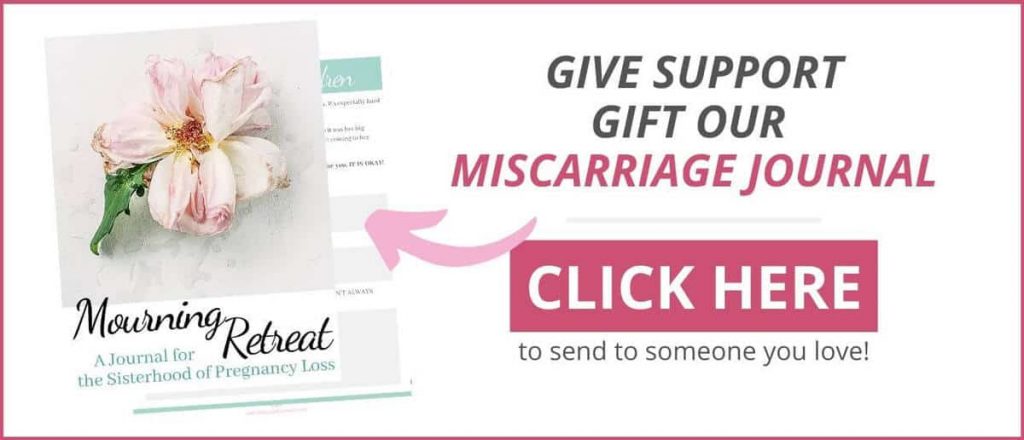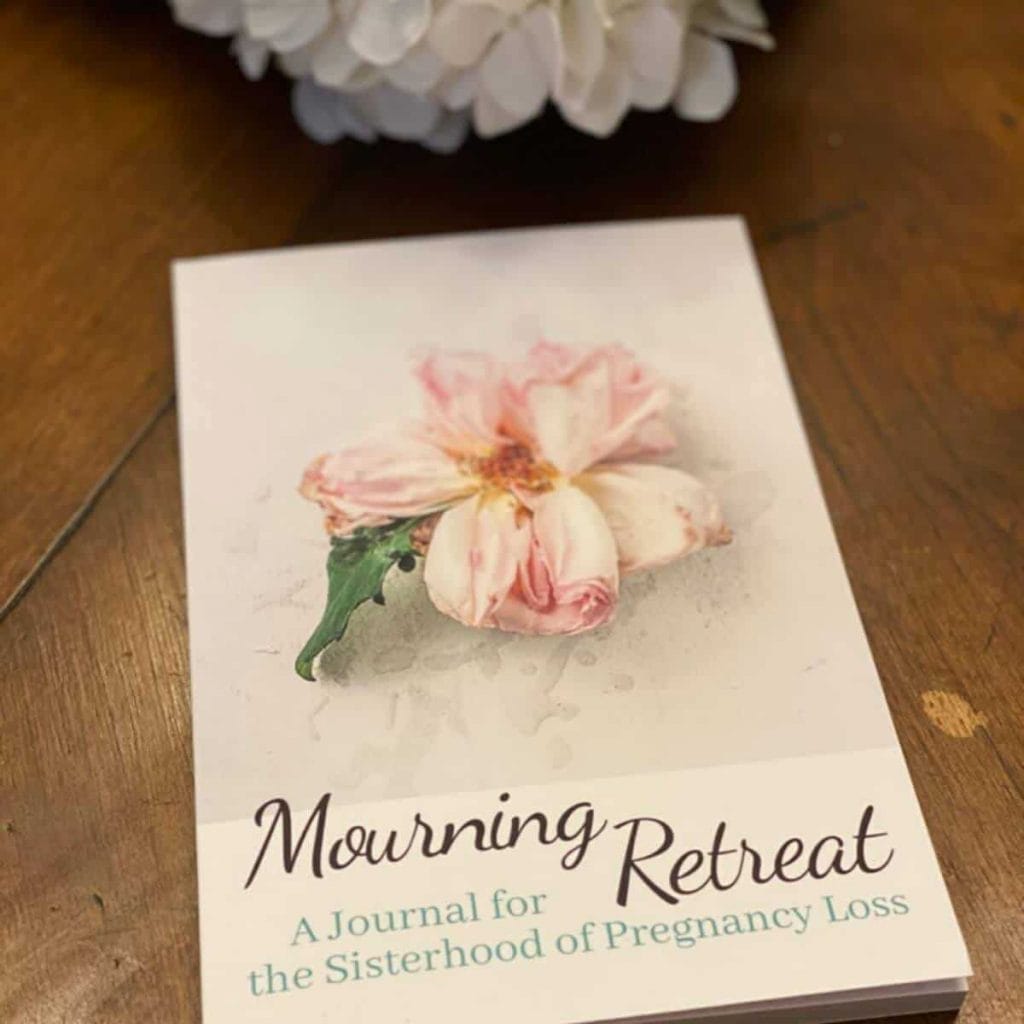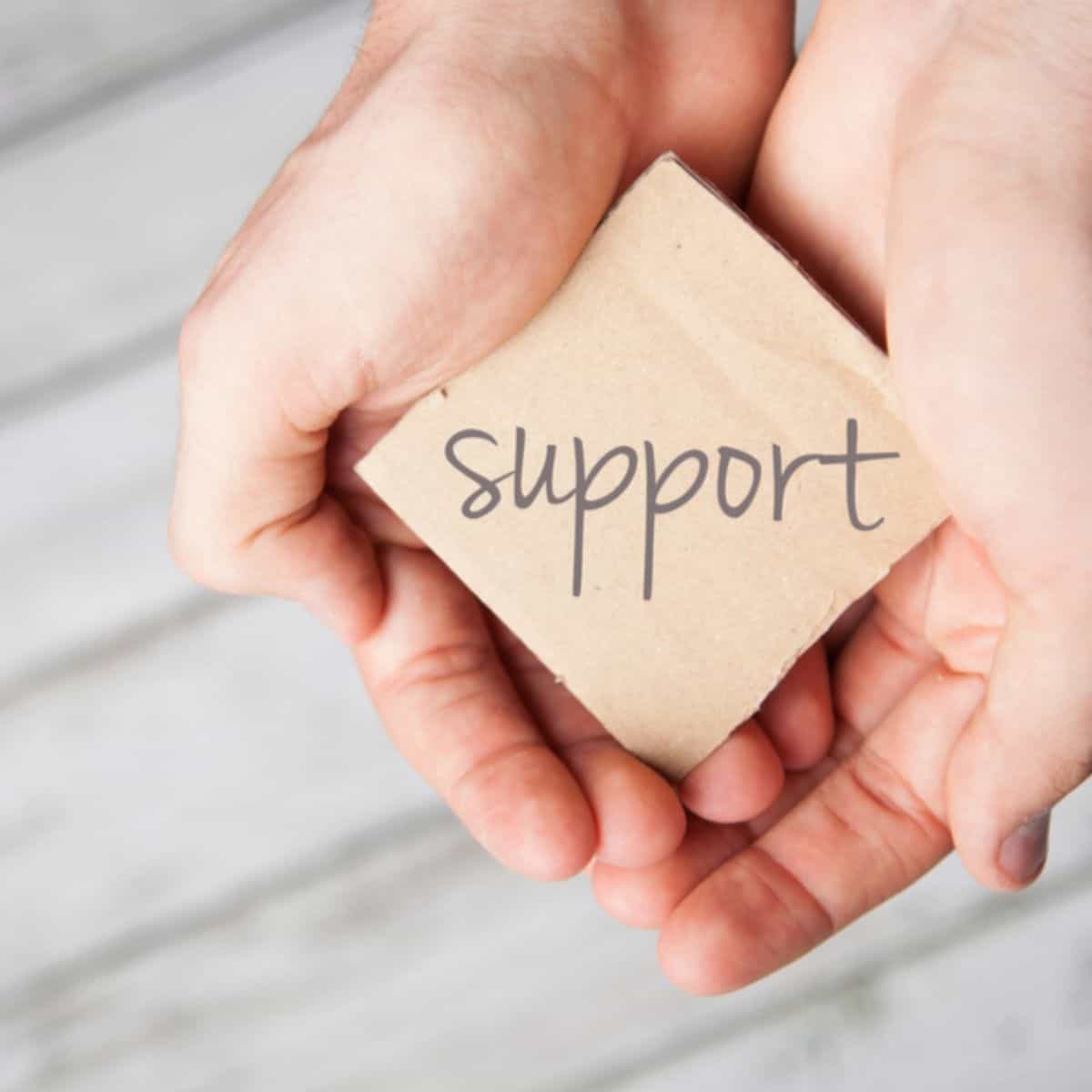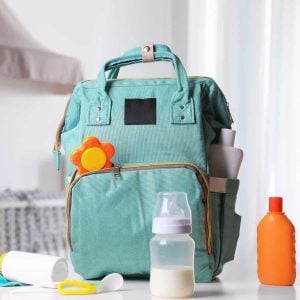I’ve heard it literally thousands of times, and I’ve experienced it from both sides: “My friend had a miscarriage and I’m pregnant. What do I do?” In this article, let’s talk about the many complicated nuances of this situation. There are so many ways to show your support: create a miscarriage care package, learn to provide miscarriage support, and recognize the importance of validating grief when helping a friend through miscarriage.

But while these ways to care for your friend make a huge difference, they don’t take into account one hugely important point. You’re pregnant, and let’s be honest, that could be hugely triggering for your friend who had a miscarriage.
Also, you probably don’t want to get too bogged down thinking or talking about pregnancy loss because, well, you’re pregnant! And who wants to think about the scary things if your brain isn’t already taking you there?
Let’s talk through some different scenarios to help you navigate this sticky situation in a way that is helpful and loving to both of you.


This site contains affiliate links, meaning that we earn a small commission for purchases made through our site. We only recommend products we personally use, love, or have thoroughly vetted.
Your Friend Had a Miscarriage and You Just Found Out You’re Pregnant
Because experiencing a miscarriage often causes lasting grief, many of us are likely to experience this situation. Even if your friend had a miscarriage 6 months or a year ago, your news still may be very hard on them.
Here are my major tips for telling friends who lost a child or pregnancy, and those suffering from infertility, that you’re pregnant.
(1) Acknowledge Their Pain
Don’t drop the news at a celebratory dinner, or send a text with excited emojis.
A simple acknowledgment of the potential pain your news might cause goes a long way.
Members of our community have had friends who said things like, “I know this is really hard, but . . . “ or “I’ve been trying to figure out how to tell you I’m expecting, but I haven’t been able to find the right words.”
Not only have they told me how supported they felt by these types of announcements, but that it also made it easier for them to enjoy their friends’ pregnancies and babies.
(2) TELL THEM! And Be Mindful of When/Where/How
Often, the discomfort of telling someone experiencing miscarriage or infertility about your new pregnancy leads people not to tell them at all. But even those who are grieving want to be included in your news. Here’s what one anonymous loss mom wants you to know.
“It’s nice to be included in the pregnancy news in a sensitive and supportive way. I’ve had many friends just not tell me about their pregnancy news (they tell my husband) probably because they feel like it will upset me, but it actually just makes me feel so isolated and like a germ.”
It’s important to share your news with infertility and loss moms, but to do so gently, acknowledging the emotions they may experience when learning your exciting news.
When I was going through recurrent miscarriage, my preference was that friends announce pregnancies to me by phone or text. A phone call still added a level of personalization, but it didn’t require me to try to keep a happy face.
Because let’s be honest, the news hurt, no matter how happy I was for my pregnant friends.
Here’s what I want you to know, pregnant mamas who are announcing to a friend going through infertility or miscarriage.
Your pregnancy is a stark reminder of your friend’s own pain. That pain is not your fault, and you’ve done nothing wrong. But you can help them through it by being mindful of your announcement.
If you know enough about their life and schedule, try not to drop the news at any major time—when they’re under excess stress, or right before a birthday, holiday, or vacation.
(3) Try Not To Take Their Reaction Personally
This includes the immediate reaction, but also the extended one. If they choose to keep their distance once your belly starts to grow, or if they just can’t stomach coming to your baby shower, please understand that it truly has nothing to do with you.
And know these rules are true for family members, not just friends. If your sister, cousin, sister-in-law, etc., experiences the loss of a child or pregnancy, please don’t expect more from her just because she’s family. These rules apply to friends and family.
Some women experiencing infertility and miscarriage can handle these events well, but others (like me) can’t, and it has nothing to do with you personally. It actually makes most of us sad that we can’t feel happier.

Check-in With Your Friend Throughout Your Pregnancy
As you go through your pregnancy, your friend’s circumstances will likely change. Perhaps she’ll become pregnant again, as well, or maybe she’ll struggle through fertility testing, IVF, or more pregnancy losses. Maybe she’ll navigate the tough road to adoption, or perhaps she’ll choose to stop trying at all.
As both of your situations change, stay in tune with one another. Touch base every now and then, especially as you near your due date, to find out what level of involvement your friend is comfortable with.
I told my friend Rebekah, for instance, that I would prefer not to be invited to her baby shower. I did give her a gift card and a note, but I didn’t take the time to peruse a baby registry to choose a gift. My heart could not have taken that.
She made it so easy on me by asking if I was comfortable being invited to her shower. I got a text one day that said, “Hey, I don’t want you to feel left out, but I also don’t want to upset you. Some people are throwing me a baby shower. Would you like to be invited?”

By checking in with me ahead of time, she knew how to best manage my tender feelings, and I felt extremely comforted by the fact that she wasn’t taking it personally that I didn’t feel up to celebrating with her.
Learn more about how to handle a baby shower after miscarriage—either as the honoree, host, or invitee.
Be Mindful of What You Say
When I say “be mindful” of what you say to your friend who is going through loss, I’m really referring to two different things here:
- First, be careful what you say about the loss your friend who had a miscarriage experienced.
- Second, be aware of what you share about your own pregnancy.
When I asked people from my recurrent pregnancy loss community about their experiences with friends who were pregnant, many brought up things people say after miscarriage. “It happened for a reason.” “It wasn’t meant to be.” And other platitudes meant to make your friend feel better, but that actually hurt them further.
Learn what not to say to someone who had a miscarriage, just to be safe.
Also, please don’t complain about your pregnancy to your friend experiencing miscarriage or infertility.
That is NOT to say you can’t complain about your pregnancy. It’s true that so many aspects of pregnancy are quite unpleasant, so by all means, complain. But complain to your friends who are or have been successfully pregnant. Complain to your friends who don’t want children.
One member of our community told me specifically about a friend who regularly complained about her pregnancy symptoms, despite knowing her friend’s history with infertility and pregnancy loss. And those complaints really hurt. She gave me permission to share her words anonymously, as they’re so poignant.
“I never understood why she thought it was okay to complain to me about something I wish so badly I could experience.”
Oh, and if you have children, avoid complaining about them to your friends experiencing infertility and pregnancy loss. Again, your complaints are valid, but watching your toddler act up and asking, “Are you SURE you want kids?” is really, truly hurtful. Even though you totally didn’t mean for it to be.
Know that She Can Be Happy for You And Sad for
This is a really, really hard one for a lot of people, so I think it’s important to make it very clear.
If your friend had a miscarriage and she doesn’t express enthusiasm about your pregnancy, it’s truly not about you. It may feel like it’s about you, and we’re so, so sorry if it does. But it’s really not.
Pregnancy is a beautiful, exciting, scary time, but for infertility and miscarriage warriors, it’s something we long for.
Your pregnancy doesn’t make us upset or angry with you. But it does remind us even more acutely of the longing in our hearts.
We can love you tremendously, and still be sad for ourselves. And if your friend had a miscarriage or has been struggling to conceive, and she isn’t there for you during your pregnancy, I’m willing to bet it makes her sad, too. She probably wants to support you. But we must guard our hearts.
Not Everyone Will React the Same Way
Given the high statistics for infertility and pregnancy loss—1 in 4 pregnancies ends in miscarriage, while 1 in 8 couples struggle with infertility in some way—it’s likely that you have multiple friends who might have a hard time with your pregnancy.
Please know that they won’t all react the same way, and that it doesn’t mean any of them care about you more or less.
We all handle our grief differently. Some people will look at your growing belly and see hope, while others will feel a deep, stabbing pain in their hearts.
Some will be raw and honest with you about their feelings, while others will put on a brave face and pretend everything is okay.
Whatever your friends do, please give them grace when you can. And know that we’re sorry this burden has fallen on you during this special time.
Don’t Try to Solve their Problem
Someone experiencing infertility or pregnancy loss likely knows far more about their options than most people. They’ve thought about adopting, about not trying again, about using a surrogate, about doing IVF.
They know their mental state, their financial situation, and what their doctors say.
I’ve actually always wanted to adopt, and part of me still wants to. But when we struggled through infertility and people asked why I didn’t “just adopt,” it made me livid.
First, there’s no “just” to any of this. Adoption is not an easy road, just like fertility treatment isn’t. But also, I learned how to deal with miscarriage. I knew how to mentally prepare myself for pregnancy, loss, testing, all of it.
I could not fathom putting myself through all the unknown pain that often accompanies adoption because I had just learned how to deal with one major, life-changing problem. I wasn’t ready to tackle another.
Asking questions about next steps and what people are thinking can be helpful, if you know your friend is open to talking about those things. But unless you’re a fertility specialist, you likely don’t have the answer to their problems. And that’s okay.

Validate Their Grief
One of the hardest things about experiencing miscarriage is the ways in which people minimize the grief loss moms experience. Most people don’t intend for their words or actions to hurt, but they often do.
Saying things that start with phrases like “At least” inherently tend to make a loss mom feel like she isn’t supposed to feel as sad as she does. And she has every right to experience her feelings.
These especially include statements like, “At least you already have your precious 3-year-old!” Moms with living children who experience loss still feel the full grief of that loss. Please love on them accordingly.
Failing to take a loss mom’s feelings into account also makes them feel like their grief isn’t valid.
Here’s what one anonymous miscarriage mama wants you to know.
“Don’t pressure [someone who is struggling with infertility or miscarriage] to attend your baby shower or come see your baby or orchestrate the meal train or whatever. Don’t try to minimize or ignore the pain they’re going through — the best thing my friend did for me was simply validating how horrible I must feel and how hard it must be to watch her pregnancy; hearing her acknowledge it out loud took away the guilt I felt about it and made it easier for me to open up with her.”
Learn more about how to help someone through miscarriage by validating their grief here.

How Can I Help a Friend Who Had a Miscarriage?
When your friend had a miscarriage, the most important thing you can do is be there for them. But if you’re pregnant, this can be hard on both of you. Your friend may not be comfortable seeing your belly, and you might not want to think in too much detail about their loss.
This is where small (or large, if you’re so inclined) gestures can really help.
If you want to send something to your friend besides flowers or a meal (both of which are good options), check out our recommended gifts for miscarriage.
Other tokens are also nice, like miscarriage memorial gifts or a miscarriage christmas ornament (for friends who celebrate Christmas, obviously).
Or simply send a note. I received one hand-written note during my losses and was so touched by the gesture!
You can also give your friend the gift of actual miscarriage support. Click here to learn more about our journal, “Mourning Retreat: A Journal for the Sisterhood of Pregnancy Loss.” This journal compiles all the tools that helps me through my losses, plus many I wish I’d had access to.

Whatever you choose to do to support your friend, know how much they’d appreciate the fact that you’re trying. The fact that you found and read this article alredy shows that you’re a good, caring friend.
How did you handle being pregnant when your friend had a miscarriage?

Other Pregnancy Articles
- Unusual early pregnancy signs
- When to announce a pregnancy on social media, to family/friends, & at work
- Pregnancy care package
- Hospital bag checklist printable
- Birthing checklist (how to write a birth plan)
- Getting ready for a baby checklist
- Baby registry must haves
- How to prepare for labor induction
Trying to Conceive Articles
- Best way to track ovulation
- TTC tips
- 2ww ttc (surviving the two week wait when TTC)











2 thoughts on “So Your Friend Had a Miscarriage and You’re Pregnant? How to Support Her”